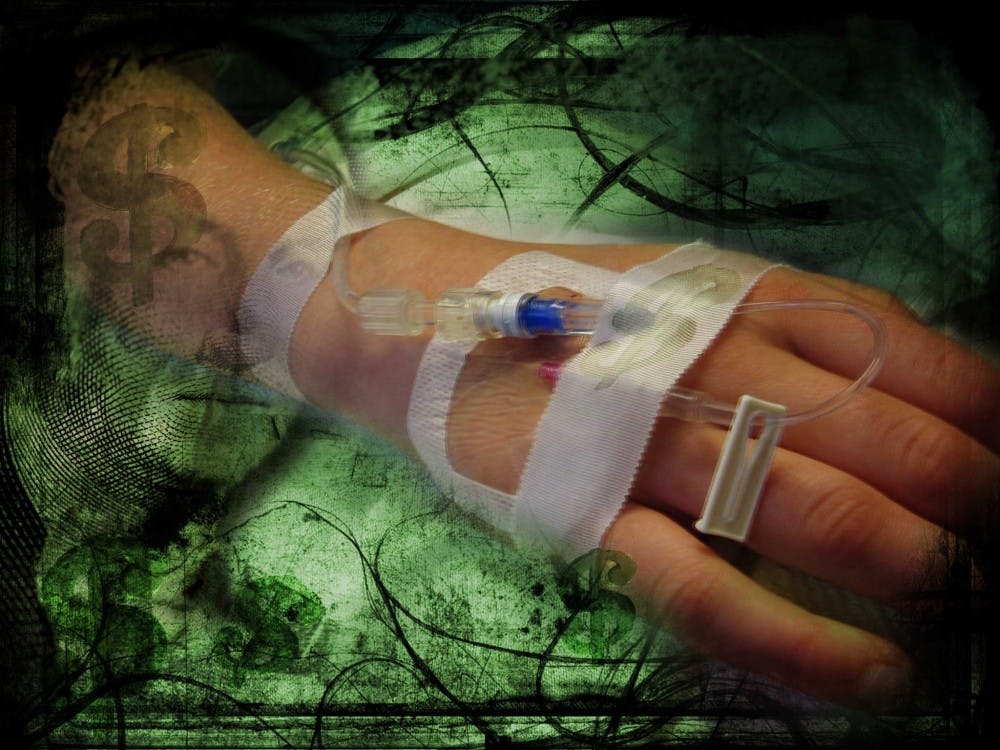Health care is a hot-button issue for Americans who feel sick and abandoned by modern medicine.
But reforming the medical industry has proved divisive.
"We are a very expensive health care system, and our health indicators don't really reflect that we're getting good value for the money that we're spending on our health care system," said Beverly Kloeppel, director of the Student Health Center.
About 405,000 New Mexicans are uninsured, said Betina Gonzalez McCracken, communications director of the state's Human Services Department.
"We obviously need to change that," McCracken said. "We need to make sure people have the health coverage they need."
Kloeppel said the U.S. health care system will run out of money if it doesn't change.
Get content from The Daily Lobo delivered to your inbox
"A lot of the resources that could be directed toward patient care are directed toward the business side of things," she said. "It reduces the amount of resources available to provide direct patient care."
Doctors without co-pays,
Some in the industry have suggested universal health care.
UNM medical student Jacob Hartz said that phrase is hard to define.
"Health care sources aren't unlimited," he said. "We can't give everyone everything, and making that decision on what we can give people and what we're going to give people is not universal."
Hartz said it is possible to provide universal coverage, but universal access is impossible.
"There will always be someone who lives in a bigger city, like Albuquerque, who has better access to health care than someone in Gallup or Farmington, because they have to travel to Albuquerque to get that service," he said.
Kloeppel said universal health care can work in the United States.
"They do it in a lot of other countries and in countries that spend a lot less than here in the United States," Kloeppel said. "So, yes, it is plausible. Whether it is politically plausible, that's all together different."
Deborah McFarlane, professor of political science, said Americans are ready for universal health care.
"The veterans are certainly ready for the VA system," McFarlane said. "People 65 and older are ready for Medicare."
McFarlane said the U.S. is one of two developed countries without universal coverage. Providing it wouldn't be difficult, she said.
"I think you just increase coverage, which is not a great deal of change," she said.
McCracken said the federal government has made no effort to create a universal health care plan.
It has become the states' responsibility to create health care solutions for citizens, she said.
The Future
Gov. Bill Richardson's plan for universal coverage in New Mexico is being discussed in the Legislature.
Richardson's Health Solutions New Mexico Plan is a common-sense approach to creating universal health coverage, McCracken said.
"So, someone who might have a pre-existing condition - sometimes, insurance companies won't write them a policy," she said. "This requires them to write a policy, and if it's too high, then there are other pools out there that they can go to."
Richardson plans to have all New Mexicans insured by 2010, McCracken said.
Hartz said universal health care would harm medical workers' salaries.
"It would definitely decrease them, because it's an easy thing to control," he said. "You can easily control how much you pay a physician. All these other things that go into health care, like the price of an X-ray, are very hard to control."
Hartz said people don't go into medicine for money, but a decrease in salaries would discourage them from entering the field.
"It's a very expensive process, and there are much easier ways of making money," he said. "I think all of the sacrifices you have to make to become a doctor, if you don't feel like you're getting sort of rewarded for it or sort of appreciated for it, it's not worth it."
Kloeppel said health care workers know there needs to be a change but aren't willing to lose profit.
"I think that when industries of any kind are faced with the fact that a change in the health care system may reduce their income, they resist," she said. "There's so many people with a piece of the health care dollar, and it makes it hard to move anything through politically."






